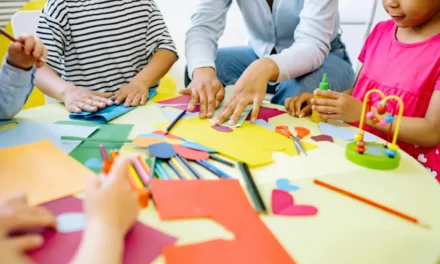
The Art of Listening: Cultivating Empathy and Connection
I
n today’s fast-paced world, the skill of listening with our hearts has become increasingly vital for fostering genuine connections and understanding among individuals. Mastering the art of listening goes beyond mere communication—it lays the foundation for empathy, compassion, and meaningful relationships. By exploring the significance of listening and its profound impact on interpersonal dynamics, you are empowered to build connections based on mutual respect, empathy, and genuine understanding.
Mastering the art of listening goes beyond mere communication—it lays the foundation for empathy, compassion, and meaningful relationships.
Understanding the Importance of Listening
Listening is not merely a passive act of hearing words—it is an active engagement with the thoughts, feelings, and needs of others. By delving into the importance of listening, you learn that attentive listening not only fosters meaningful communication but also strengthens relationships. They understand that by actively listening to others, they demonstrate respect for their perspectives, laying the groundwork for building trust and connection.
Moreover, understanding the importance of listening also equips you with essential conflict resolution and problem-solving skills. When you learn to listen attentively, you create an environment conducive to dialogue and understanding, fostering a culture of collaboration and cooperation. You will recognize that through active listening, you can navigate conflicts and challenges more effectively, leading to mutually beneficial outcomes and stronger relationships.
Furthermore, learning about the value of listening as a way to show respect and care for others instills a sense of empathy and understanding. When you understand that listening attentively is a form of empathy, you are more likely to approach interactions with sensitivity and consideration for the feelings of others.

Learning about the value of listening as a way to show respect and care for others instills a sense of empathy and understanding.

Empathy and Understanding
Empathy lies at the heart of effective listening, enabling you to connect with others on a deeper level and foster genuine understanding. When you listen with empathy, you transcend surface-level interactions and forge bonds of compassion and mutual respect. By attuning your ears to the nuances of emotions and experiences, you learn to step into others’ shoes and view the world from their perspective.
Empathy is not merely a passive response but an active engagement with the feelings of others and their experiences. When you practice empathy in your listening, you validate others’ emotions and create a safe space for expression and vulnerability. You understand that through empathy, you can foster a sense of belonging and acceptance, nurturing inclusive and supportive relationships.
Furthermore, learning about the importance of empathy in listening helps you develop stronger social skills and emotional intelligence. As you learn to recognize and validate others’ feelings, you become more adept at navigating complex social situations and forming meaningful connections with others.

Sharpen those skills!
Enter your information to get our FREE practice exercises so you can hone your critical thinking and reasoning skills!
Through consistent practice, you can hone your ability to listen attentively and respond with sensitivity and compassion.
Practicing Active Listening
Practicing active listening empowers you to apply your understanding of empathy in real-life interactions and develop strong communication skills. From making eye contact and nodding to asking clarifying questions and paraphrasing what the speaker said, active listening involves demonstrating genuine interest and engagement in the conversation. Through consistent practice, you can hone your ability to listen attentively and respond with sensitivity and compassion.
Moreover, practicing active listening cultivates self-awareness and mindfulness in your interactions with others. By tuning into your own thoughts and emotions, you become better equipped to empathize with others and navigate diverse social situations with grace and empathy. You will recognize that through active listening, you can build stronger connections, resolve conflicts peacefully, and create a supportive and inclusive environment where every voice is heard and valued.
I
n conclusion, the art of listening with our hearts is a transformative skill that empowers you to build meaningful relationships, navigate conflicts, and foster a culture of empathy and understanding. As we embark on the journey of mastering the art of listening, let us cultivate a culture where every interaction is an opportunity to connect, learn, and grow together. Through the power of active listening, you can truly make a difference in the world by fostering compassion, empathy, and mutual respect in your communities.
Share your thoughts with the Thought Academy community in the Comments section below.

Sharpen those skills!
Enter your information to get our FREE practice exercises so you can hone your critical thinking and reasoning skills!






0 Comments